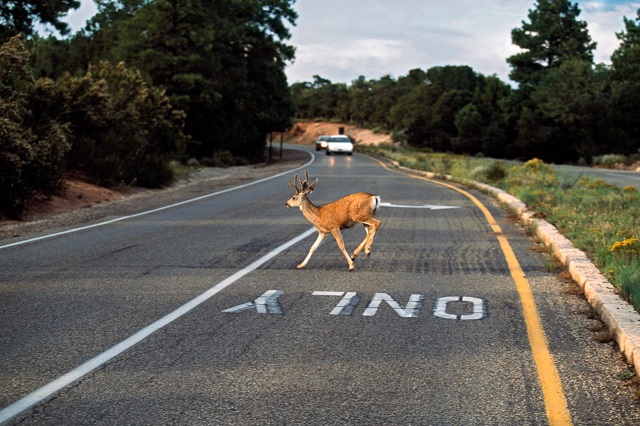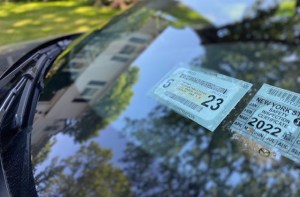An estimated one to two million collisions between vehicles and wildlife occur every year in the United States, according to the Federal Highway Administration. In most of these crashes, the animal dies immediately or shortly after. The result is an abundance of roadkill strewn across American roadways.
Roadkill is more than just an eyesore. Animal carcasses in the street can pose a serious driving hazard for motorists. Therefore, if you come across roadkill, you should act. Here’s what to do.
Call the Professionals
Roadkill should be cleared from the road as quickly as possible. Not only do the carcasses pose a danger to drivers who may be forced to swerve around them, their smell attracts scavenging animals who will descend upon the road looking for their next meal. This creates more potential driving hazards and roadkill.
Your safest bet for getting roadkill removed is to contact the proper authorities. If you can safely pull over to the side of the road to make the call, do so. If not, make a mental note of the animal’s location and then contact authorities once you’ve reached your destination.
Figuring out who you should direct your call to can be a little tricky, as towns and cities designate this task to different departments. Most often, it’s the responsibility of the local department of sanitation, street maintenance, public works, animal control or wildlife management. You should be able to find the appropriate agency to call with a quick internet search. If not, call your local government’s helpline and ask to be connected. Workers from one of these government agencies will come to the site to remove the carcass.
If you stopped to report the roadkill, feel free to continue on your way after making the call. You do not need to remain at the location for the crew to arrive.
Discover how wildlife crossings can reduce the occurrence of roadkill.
How to Move the Roadkill Yourself
Moving roadkill yourself is usually not the best course of action. It can be dangerous to park your car on the side of the road, let alone walk into the middle of it. This is especially true if you’re traveling along a busy street or highway.
Furthermore, dead animals pose a serious health risk to humans. During decomposition, disease-causing bacteria normally contained inside the animal’s body can be released, exposing those in close proximity of the carcass. Dead animals also attract fleas, ticks and maggots, all of which can transmit their own set of diseases.
If the roadkill is in front of your house or on a quiet street and you feel compelled to move it yourself, make sure to do it safely and properly. First gather the necessary tools, including thick gloves, a shovel, heavy-duty garbage bag and some sort of face covering to protect your nose and mouth. Use the shovel to move the carcass off the road and/or into the garbage bag. Never make direct contact with the dead animal. Secure the bag and dispose of it properly, which usually means having it hauled to a local landfill.
Finally, you’ll want to make sure to clean the area. Start by hosing or wiping down the spot. Then use a disinfectant to eliminate any hazardous bacteria that could still be present.
Can You Salvage Roadkill?
Sport hunters may be happy to know that many states allow citizens to take roadkill home with them to salvage the meat for consumption. Most, however, have some restrictions and/or regulations, which usually include reporting the roadkill to authorities and obtaining a permit. In Massachusetts, for example, deer carcasses taken into possession must be brought to state authorities within 24 hours to be tagged and recorded. In New Jersey, only deer roadkill may be salvaged and only by obtaining a permit from local police.
It’s very important to note that roadkill is not always safe for human consumption, especially if it’s been exposed to the elements for an extended period of time. Although it certainly can be done (and is PETA’s preferred option if you choose to eat meat), make sure it’s safe to eat before bringing it home for dinner.
Deer are one of the most common large animals to be involved in vehicle-wildlife collisions. Here’s how to avoid them.
Have you noticed an increase in roadkill? Leave your thoughts and comments below.
2 Thoughts on “What To Do if You Find Roadkill”
Leave A Comment
Comments are subject to moderation and may or may not be published at the editor’s discretion. Only comments that are relevant to the article and add value to the Your AAA community will be considered. Comments may be edited for clarity and length.















how do you obtain a permit after law enforcement allows you to remove doe in Washington state?
I have noticed an unfortunate increase in roadkill in my city as more and more development has increased the traffic in our area. Sadly lots of opossums, raccoons and cats have died needlessly due to aggressive driving. As someone who works with feral cat colonies, it is heartbreaking to see so many fellow creatures killed and maimed. Please drive responsibly without distractions and slow down.